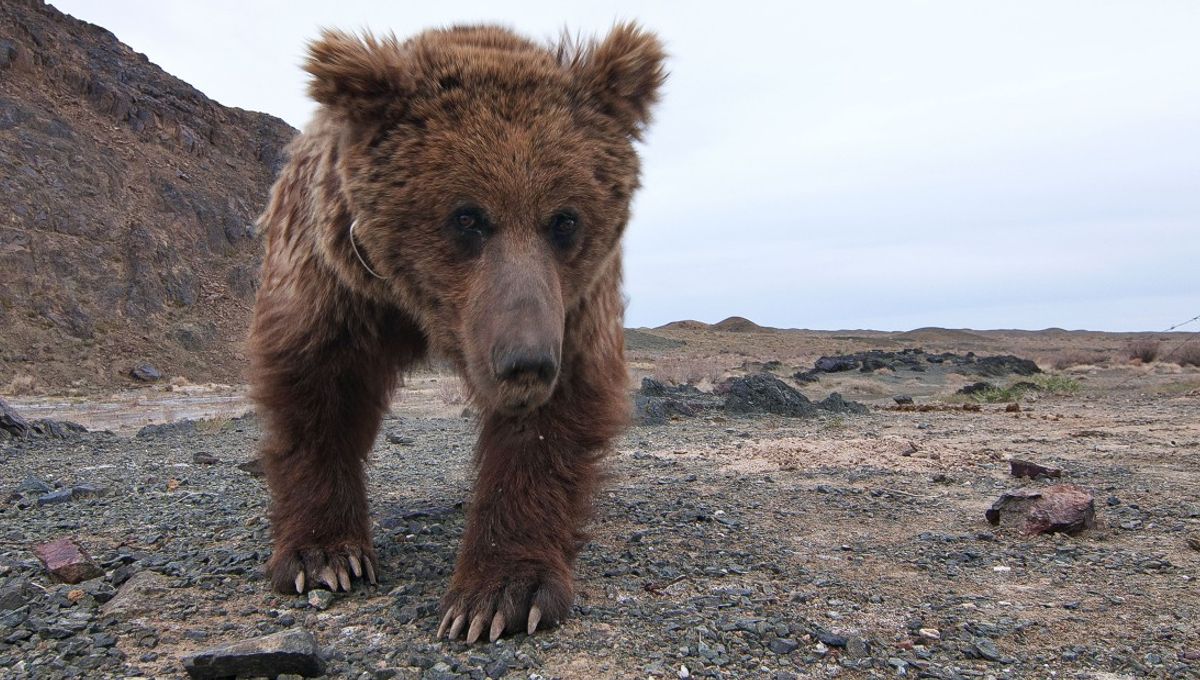
In the Gobi desert lives one of the rarest animals on Earth. Known in Mongolian as the Mazaalai, the Gobi bear (Ursus arctos gobiensis) is the rarest of the planet’s eight bear species. As Sir David Attenborough said in the BBC series Asia, “They are so rarely seen they were thought to be a myth.”
That myth centered around a beast known to Mongolians as the Alma. It was sort of their version of Bigfoot or the Yeti, as tales spoke of how it wandered the desert and looked a bit like a human. Sounds like a story of old, but Gobi bears weren’t officially documented until 1943 when they became – and remain to this day – the only bears known to exclusively live in the desert.
“Life here, in the arid heart of Asia, has turned them into one of the toughest animals on Earth – they are clinging to existence,” says Attenborough in the below clip. “In Mongolian, Gobi means ‘waterless place’ and therein lies the bear’s greatest challenge: sources of water may be 100 miles [160.9 kilometers] apart – they face a gruelling trek across the desert.”
Gruelling sounds about right, and it’s hard to imagine how this unique variety of grizzly bear evolved to tolerate a place that bounces between -38°C (-36.4°F) at its coldest and +42°C (106° F) at its warmest. Still, it endures, and when that seemingly unending search for water pays off, it seems the bears are very happy.
“A freshwater spring fed from deep underground,” says Attenborough. “At last, a drink, and a refreshing dip. The oases are a lifeline for the bears, particularly for those that are extremely precious: a Gobi bear cub. The future of these bears rests on just a few individuals, but this young one is a symbol of hope for the Gobi bear.”
Hardy though they may be, these rare bears may be in trouble. Already threatened by the extremes of temperature, they also face new threats from mining activity in this remote region. Fortunately, they were among a number of rare mammals to receive greater international protection under the Convention on Migratory Species (CMS), through its Central Asian Mammals Initiative (CAMI) in 2019.
The Gobi Bear Project was also set up by Mongolian and international scientists to assist the Government of Mongolia in its commitment to recover the Critically Endangered species through protected area management and research. To date, they’ve fitted 20 bears with tracking collars, contributing to better understanding of their behavior, migrations, genetics, and reproductive success, all of which we’re going to need for effective conservation strategies.
So, drink up, little cub. The world needs you.
Hungry for more of Asia’s remarkable wildlife? Catch all episodes of Asia on BBC iPlayer.
Source Link: Watch A Rare Gobi Bear Finally Find Water After A 160-Kilometer Trek Through A “Waterless Place”